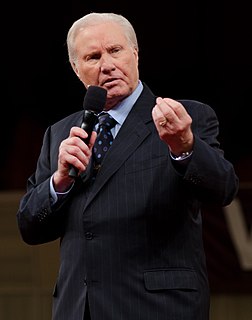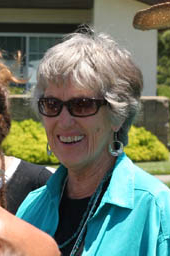A Quote by Pema Chodron
Buddhist words such as compassion and emptiness don't mean much until we start cultivating our innate ability simply to be there with pain with an open heart and the willingness not to instantly try to get ground under our feet. For instance, if what we're feeling is rage, we usually assume that there are only two ways to relate to it. One is to blame others. Lay it all on somebody else; drive all blames into everyone else. The other alternative is to feel guilty about our rage and blame ourselves.
Quote Topics
Ability
About
Alternative
Assume
Blame
Buddhist
Compassion
Cultivating
Drive
Else
Emptiness
Everyone
Everyone Else
Feel
Feeling
Feet
Get
Ground
Guilty
Heart
Innate
Instance
Instantly
Lay
Mean
Much
Only
Open
Open Heart
Other
Others
Our
Ourselves
Pain
Rage
Relate
Simply
Somebody
Start
Try
Two
Two Ways
Until
Ways
Willingness
Words
Related Quotes
Nothing helps us build our perspective more than developing compassion for others. Compassion is a sympathetic feeling. It involves the willingness to put yourself in someone else's shoes, to take the focus off yourself and to imagine what it's like to be in someone else's predicament, and simultaneously, to feel love for that person. It's the recognition that other people's problems, their pain and frustrations, are every bit as real as our own-often far worse. In recognizing this fact and trying to offer some assistance, we open our own hearts and greatly enhance our sense of gratitude.
By our attitude, we decide to read, or not to read. By our attitude, we decide to try or give up. By our attitude, we blame ourselves for our failure, or we blame others. Our attitude determines whether we tell the truth or lie, act or procrastinate, advance or recede, and by our own attitude we and we alone actually decide whether to succeed or fail.
We won't let ourselves feel our anger, rage, and pain. We push it down or anesthetize it through drugs, alcohol, shopping, or whatever we do in order not to feel it. When that memory and the associated feelings get lodged down there in our soul, the feelings are still there. They don't just magically go away. We have to give ourselves the opportunity to feel them.
Where is fate and who is fate? We reap what we sow. We are the makers of our own fate. None else has the blame, none else has the praise. We make our own destiny.
The Christian is not to become a Hindu or a Buddhist, nor a Hindu or a Buddhist to become a Christian.
Each must assimilate the spirit of other religion and yet preserve his individuality and follow his own law of growth.
I do not plan in any way to whitewash my sin. I do not call it a mistake, a mendacity; I call it sin. I would much rather, if possible - and in my estimation it would not be possible - to make it worse than less than it actually is. I have no one but myself to blame. I do not lay the fault or the blame of the charge at anyone else's feet. For no one is to blame but I take the responsibility. I take the blame. I take the fault.
There is a foundation for our lives, a place in which our life rests. That place is nothing but the present moment, as we see, hear, experience what is. If we do not return to that place, we live our lives out of our heads. We blame others; we complain; we feel sorry for ourselves. All of these symptoms show that we're stuck in our thoughts. We're out of touch with the open space that is always right here.
Torture presupposes, it requires, it craves the abrogation of our capacity to imagine others suffering, dehumanizing them so much that their pain is not our pain. It demands this of the torturer, placing the victim outside and beyond any form of compassion or empathy, but also demands of everyone else the same distancing, the same numbness.
They are self-loathing people, these leftists. I can't imagine what it would be like to get up and live their life every day. To have to be mad all the time, at everybody else, knowing full well you are a failure and having the inability to do anything about it because you will not look at yourself. You gotta blame George W. Bush or you gotta blame corporations, or you have to blame somebody. Blame talk radio.
Our weaknesses are always evident, both to ourselves and others. But our strengths are hidden until we choose to reveal them--and that is when we are truly tested. When all that we have within is exposed, and we may no longer blame our inadequacies for our failure, but must instead depend upon our strengths to succeed ... that is when the measure of a man is taken, my boy.
We are capable of suffering with our world, and that is the true meaning of compassion. It enables us to recognize our profound interconnectedness with all beings. Don't ever apologize for crying for the trees burning in the Amazon or over the waters polluted from mines in the Rockies. Don't apologize for the sorrow, grief, and rage you feel. It is a measure of your humanity and your maturity. It is a measure of your open heart, and as your heart breaks open there will be room for the world to heal. That is what is happening as we see people honestly confronting the sorrows of our time.
When we're incomplete, we're always searching for somebody to complete us. When, after a few years or a few months of a relationship, we find that we're still unfulfilled, we blame our partners and take up with somebody more promising. This can go on and on - series polygamy - until we admit that while a partner can add sweet dimension to our lives, we, each of us, are responsible for our own fulfillment. Nobody else can provide it for us, and to believe otherwise is to delude ourselves dangerously and to program for eventual failure every relationship we enter.




































